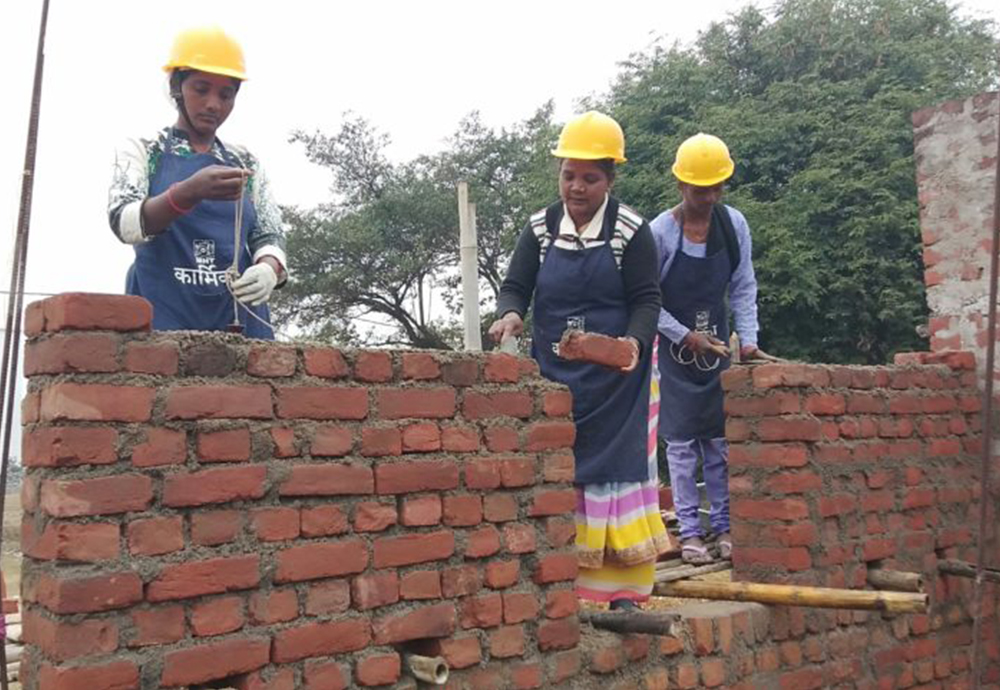
Improving lives and meeting demands: Karmika School trains women in India’s booming construction industry
There are 31 million workers in India’s construction sector, which is the second-largest sector in the Indian economy. 51% of those 31 million workers are women with little to no training in construction. Women usually do the unskilled work of diggers, cement mixers, and stone breakers. They carry bricks, cement, sand, and water.
For context: 93% of women working in the construction industry in the 5th most populous city in India, Ahmedabad, have no training. 70% of these women reported constant pain as a result of their job. The wages and demand for skilled labor have gone up, but the wages and demand for unskilled labor have gone down. This has the largest impact on women workers. Training female construction workers helps with negotiating higher wages and ensuring employment. After training, wages can rise from 250 Rupees to 400 Rupees per day—meaning more stability and savings for women and their families. However, skilled construction labor such as carpentry, plumbing, electricity, masonry and stone cutting knowledge is passed down from father to son. This excludes women from skilled, higher paid labor.
To develop the skill set of women construction workers, Mahila Housing Trust began providing construction training in 1998 and started the Karmika School for construction workers in 2003. The school is decentralized, moving to places where there is demand for training. Karmika School provides skills training to women and at the end of training, the skilled women get certification from Construction Industry Development Council (CIDC) and Federation of Indian Chambers of Commerce & Industry (FICCI).
MHT’s Karmika programme has trained more than 14,000 workers in the states of Gujarat, Rajasthan, Madhya Pradesh, Bihar, and the capital city of New Delhi.
Receiving training and certification through the Karmika School has improved women’s lives. In a survey of Karmika School graduates, after training 80% of women reported a rise in income and 85% of women reported that their contractor spoke to them nicely and with respect. Training means women can begin to bargain for better wages and treatment. But the construction industry needs reforms: including guaranteed regular employment, an enforceable minimum wage, accident insurance, and childcare at job sites.
Training and empowering women in the construction industry while making sure proper reforms and regulations are passed means improving the lives of women and their families, while meeting the demand for skilled labor to help build infrastructure and housing in India.
Blog Courtesy: Sarah Wasik
Check Out: Related Webinar
